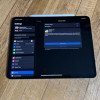It's time to delete the scary amount of data Google has on you

Google may be collecting far more personal data and information than you might realize. Every search you perform and every YouTube video you watch, Google is keeping tabs on you. Google Maps even logs everywhere you go, the route you use to get there and how long you stay, no matter if you have an iPhone or an Android. It can be eye-opening and possibly a little unsettling looking into everything Google knows about you.
Google's tracking has caught the attention of attorneys general from Indiana, Texas, Washington state and Washington, DC. They allege the search giant makes it "nearly impossible" for people to stop their location from being tracked and accuse the company of deceiving users and invading their privacy. As a result, the attorneys general are suing Google over its use of location data.
Since 2019, Google has made changes to how your location data is collected and the options you have in controlling it. This includes autodelete controls, which allow people to automatically delete their location data on a rolling basis, and an incognito mode in Google Maps, which lets people browse and get directions without Google saving that information. We're going to cut through all the clutter and show you how to access the private data Google has on you, as well as how to delete some or all of it. Then we're going to help you find the right balance between your privacy and the Google services you rely on by choosing settings that limit Google's access to your information without impairing your experience.









































































